Alex P. Leung
The University of Hong Kong
DeepGrav: Anomalous Gravitational-Wave Detection Through Deep Latent Features
Mar 05, 2025Abstract:This work introduces a novel deep learning-based approach for gravitational wave anomaly detection, aiming to overcome the limitations of traditional matched filtering techniques in identifying unknown waveform gravitational wave signals. We introduce a modified convolutional neural network architecture inspired by ResNet that leverages residual blocks to extract high-dimensional features, effectively capturing subtle differences between background noise and gravitational wave signals. This network architecture learns a high-dimensional projection while preserving discrepancies with the original input, facilitating precise identification of gravitational wave signals. In our experiments, we implement an innovative data augmentation strategy that generates new data by computing the arithmetic mean of multiple signal samples while retaining the key features of the original signals. In the NSF HDR A3D3: Detecting Anomalous Gravitational Wave Signals competition, it is honorable for us (group name: easonyan123) to get to the first place at the end with our model achieving a true negative rate (TNR) of 0.9708 during development/validation phase and 0.9832 on an unseen challenge dataset during final/testing phase, the highest among all competitors. These results demonstrate that our method not only achieves excellent generalization performance but also maintains robust adaptability in addressing the complex uncertainties inherent in gravitational wave anomaly detection.
On Improving the Performance of Glitch Classification for Gravitational Wave Detection by using Generative Adversarial Networks
Jul 08, 2022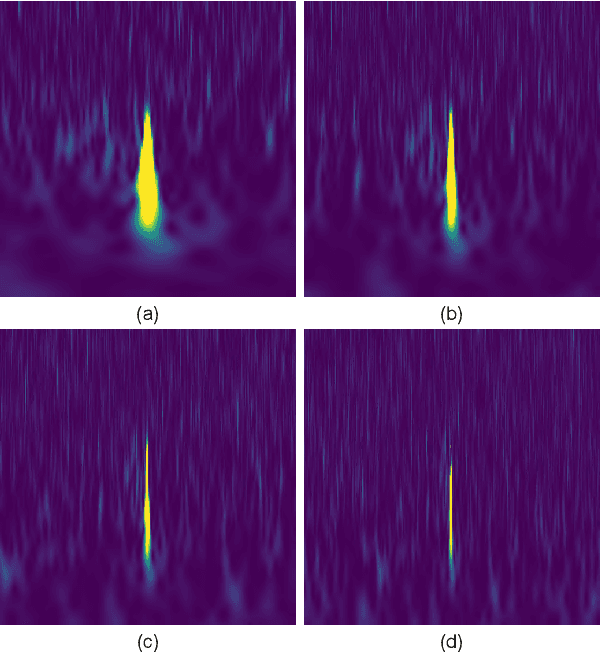

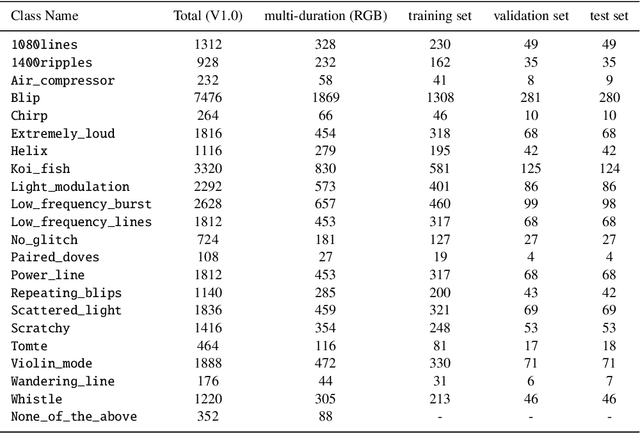
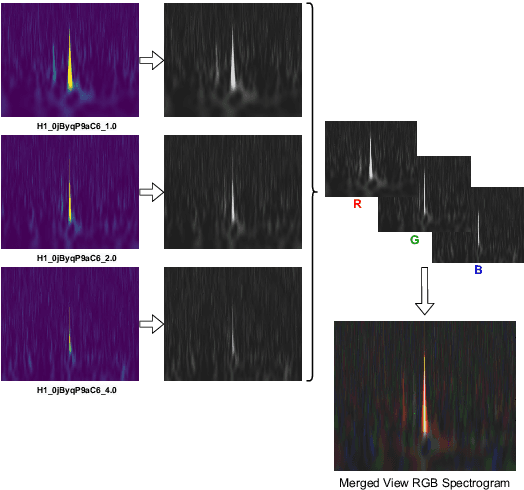
Abstract:Spectrogram classification plays an important role in analyzing gravitational wave data. In this paper, we propose a framework to improve the classification performance by using Generative Adversarial Networks (GANs). As substantial efforts and expertise are required to annotate spectrograms, the number of training examples is very limited. However, it is well known that deep networks can perform well only when the sample size of the training set is sufficiently large. Furthermore, the imbalanced sample sizes in different classes can also hamper the performance. In order to tackle these problems, we propose a GAN-based data augmentation framework. While standard data augmentation methods for conventional images cannot be applied on spectrograms, we found that a variant of GANs, ProGAN, is capable of generating high-resolution spectrograms which are consistent with the quality of the high-resolution original images and provide a desirable diversity. We have validated our framework by classifying glitches in the {\it Gravity Spy} dataset with the GAN-generated spectrograms for training. We show that the proposed method can provide an alternative to transfer learning for the classification of spectrograms using deep networks, i.e. using a high-resolution GAN for data augmentation instead. Furthermore, fluctuations in classification performance with small sample sizes for training and evaluation can be greatly reduced. Using the trained network in our framework, we have also examined the spectrograms with label anomalies in {\it Gravity Spy}.
PinView: Implicit Feedback in Content-Based Image Retrieval
Oct 02, 2014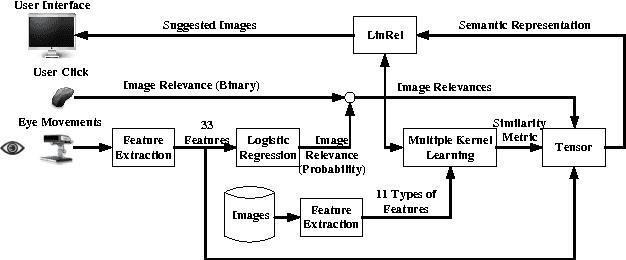
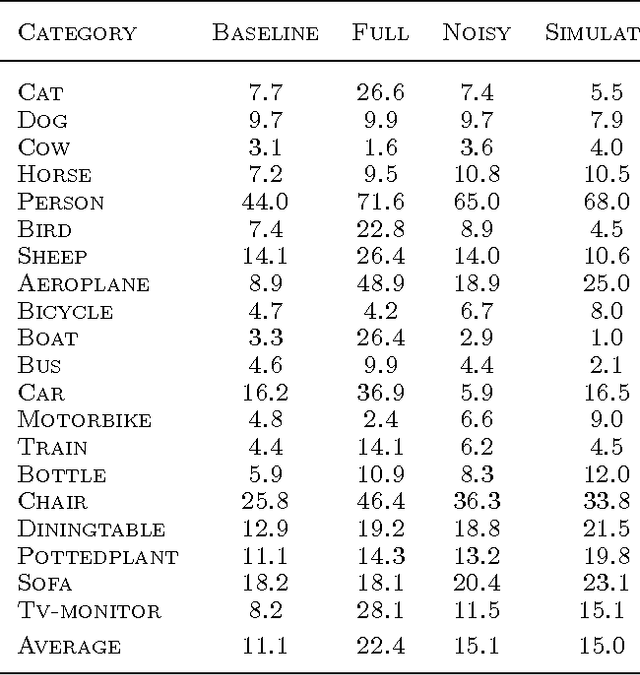
Abstract:This paper describes PinView, a content-based image retrieval system that exploits implicit relevance feedback collected during a search session. PinView contains several novel methods to infer the intent of the user. From relevance feedback, such as eye movements or pointer clicks, and visual features of images, PinView learns a similarity metric between images which depends on the current interests of the user. It then retrieves images with a specialized online learning algorithm that balances the tradeoff between exploring new images and exploiting the already inferred interests of the user. We have integrated PinView to the content-based image retrieval system PicSOM, which enables applying PinView to real-world image databases. With the new algorithms PinView outperforms the original PicSOM, and in online experiments with real users the combination of implicit and explicit feedback gives the best results.
 Add to Chrome
Add to Chrome Add to Firefox
Add to Firefox Add to Edge
Add to Edge